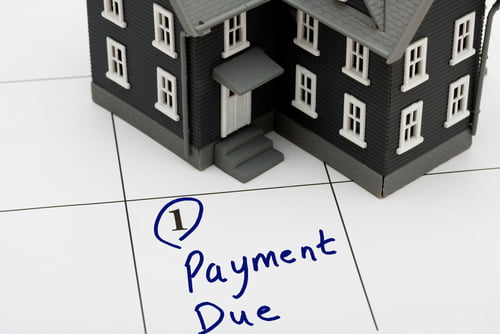While Canadian lenders stepped forward with unprecedented measures to assist those affected by the COVID-19 pandemic, there were still some homeowners unable to make their mortgage payments over the past month.
As many as one in 20 homeowners (6%) said they missed their mortgage payment recently due in part or in full to the ongoing pandemic, with another 5% declining to answer. That’s according to new data from Forum Research. The survey, which polled 1,335 people on April 13, found that of those who had already missed a mortgage payment, upwards of three quarters (76%) said they will miss another mortgage payment before the pandemic ends. Although Forum Research cautions that this is based on a very small sample size.
 Nearly half (46%) of the survey’s respondents said they were denied mortgage assistance, such as a mortgage deferral, from their financial institution, while 8% said they successfully received assistance.
Nearly half (46%) of the survey’s respondents said they were denied mortgage assistance, such as a mortgage deferral, from their financial institution, while 8% said they successfully received assistance.
According to the Canadian Bankers Association, as of April 9 nearly 600,000 Canadians had so far been approved for some form of mortgage deferral assistance.
Renters also reported a high percentage of missed payments, with up to one-sixth (14%) saying they missed a rent payment due to the pandemic. And of those who said they hadn’t missed a payment, 1 in 10 (13%) said they expected to miss a future payment.
Mortgage Rates Falling
Follow a rapid rise in mortgage rates last month, risk premiums due to market and liquidity concerns are falling by the wayside and lenders are quickly bringing their rates back down.
This includes both fixed and variable rates for new borrowers, with some lenders reducing rates by as much as 30+ bps over the last couple of weeks.
But there’s still a ways for them to fall in order to reach historical levels, according to some observers.
“This time last year, the lowest widely available uninsured 5-year fixed was 145 bps over the 5-year government bond,” wrote Rob McLister in a recent RateSpy.com post. “Today that spread is 221 bps. If spreads get back to the 150-bps range in 6-12 months and bond yields linger around these levels, a new borrower with a $300,000 5-year fixed could save up to $17,000+ in interest over five years.”
 Consumer Confidence Plunges
Consumer Confidence Plunges
Unsurprisingly, consumer confidence in Canada has dropped off a cliff in the face of the COVID-19 pandemic.
The Bloomberg Nanos Canadian Confidence Index fell to its lowest level since it began tracking data in 2008, with a reading of 38.7, down sharply from a mid-50s range recorded at the start of the year.
The survey found an increased level of anxiety among consumers. Four out of five (79%) said they believe the country’s economy will worsen before it improves, which is up from 74% just last week. Prior to that, the last high was 57% set in 2008.
A full 36.9% of Canadians also said their finances have worsened over the past year, reaching a new record.





